The Aura Band is a new Apple Watch strap that debuted during CES and aims to give additional health information to the user. AppleInsider tries it on.
Apple Watch already does a lot between measuring your steps, workouts and heart rate. That doesn't mean there aren't any health metrics left to measure. Enter, Aura Band.
Aura Band is a simple strap for your Apple Watch that incorporates sensors — built into two metal components — in a colorful rubberized strap. The device can measure body composition, track hydration levels and evaluate the risk of heart failure, then display that data right on Apple Watch.
In our demo, we saw body fat, muscle and hydration levels displayed.
Aura Band uses bioimpedance technology, with a 4-point electrode system to track weight loss and other changes throughout your body. Taking a measurement is as easy as taking any of Apple Watch's own measurements. Open the Aura watch app, push the button on the strap, then hold the electrodes for five seconds. All data will be displayed and synced back to Apple's HealthKit.
Aura Band's creator says the device should be worn every day for better progress tracking and monitoring of heart issues. The downside is the band isn't all that attractive, made in bright colors that may not fit the taste of every user.
We will have to do more testing as it gets closer to launch to see how well the band's measurements perform over time.
AppleInsider is attending the Las Vegas Consumer Electronics Show from Jan. 8 through Jan. 11, where we're expecting 5G devices, HomeKit, 8K monitors and more. Keep up with our coverage by downloading the AppleInsider app, and follow us on YouTube, Twitter @appleinsider and Facebook for live, late-breaking coverage. You can also check out our official Instagram account for exclusive photos throughout the event.
 Andrew O'Hara
Andrew O'Hara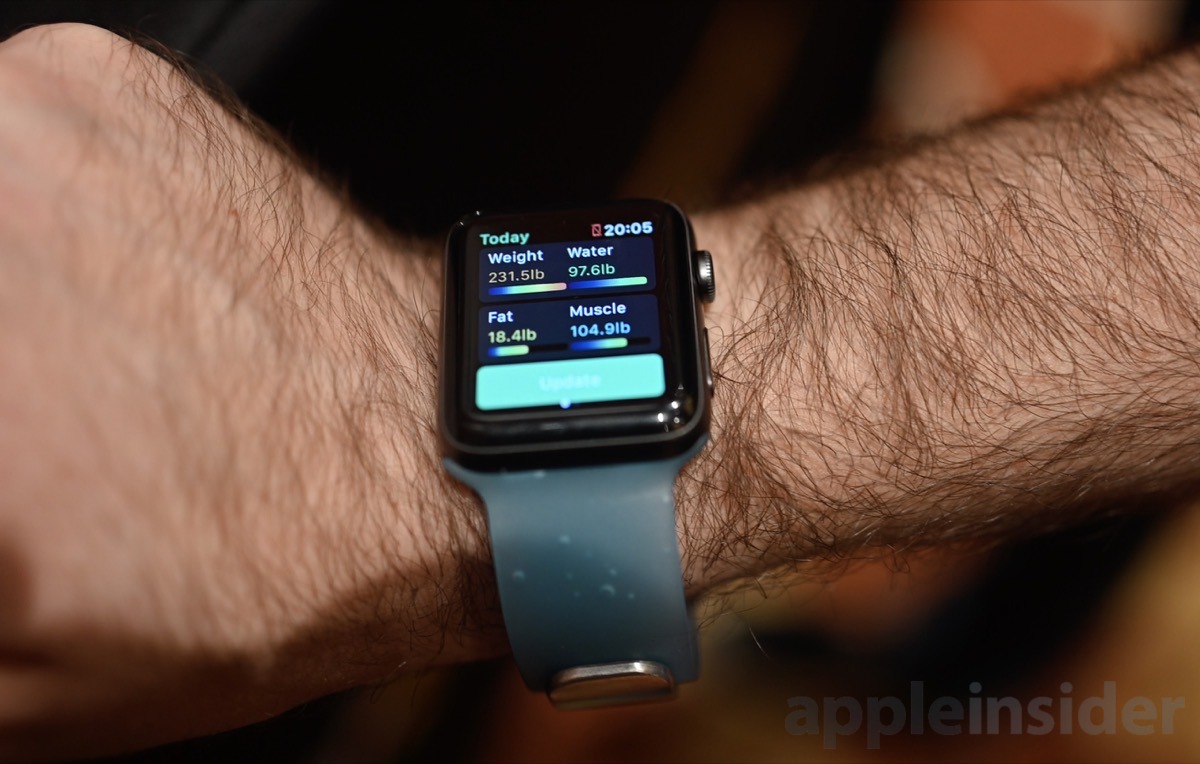
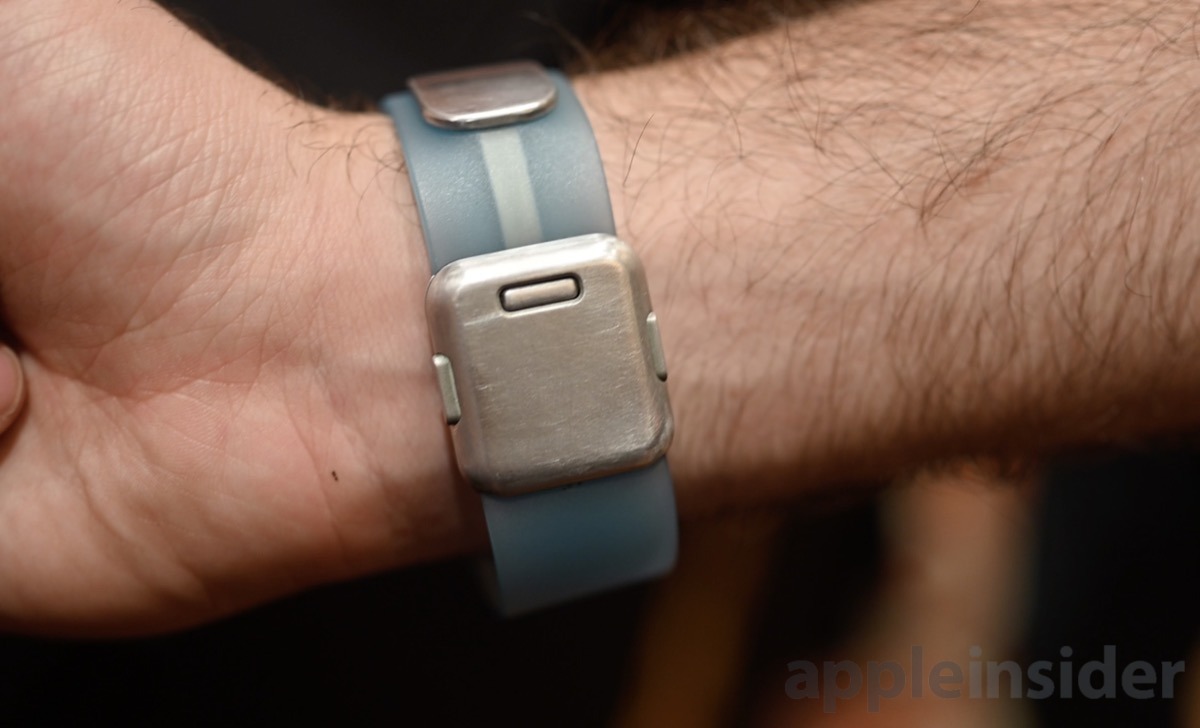
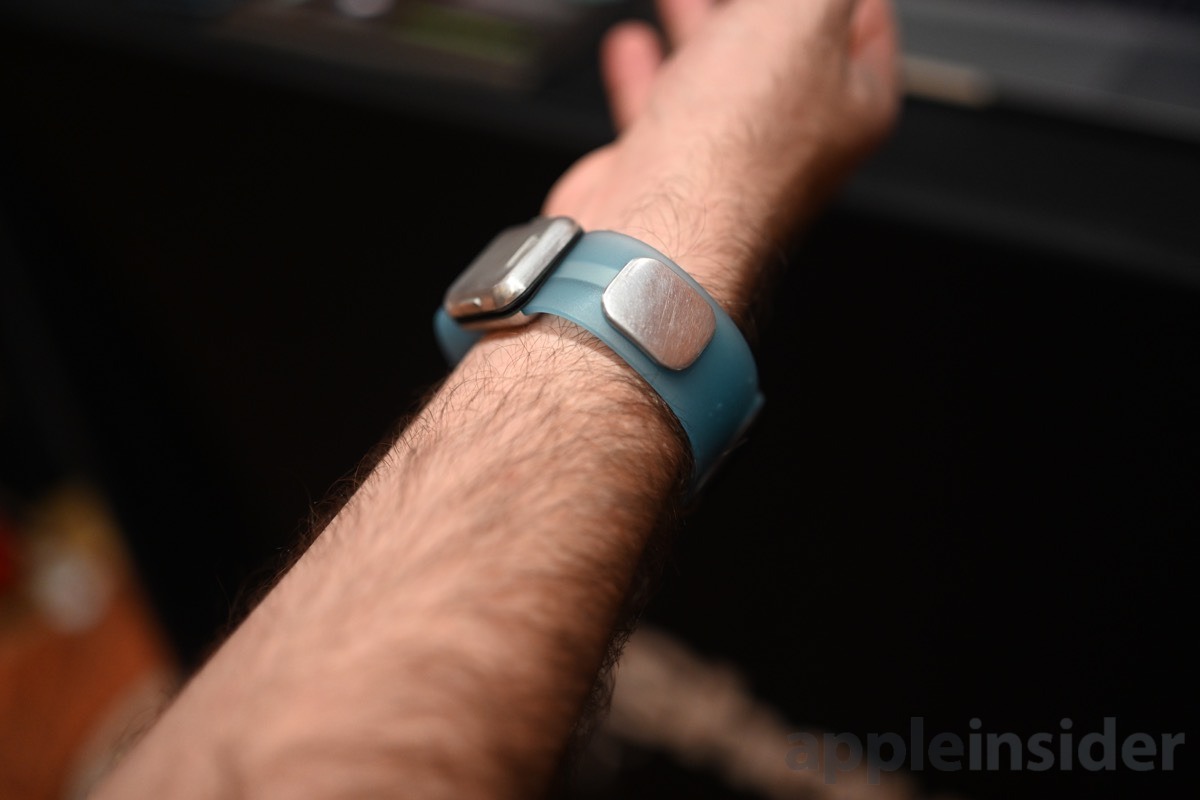
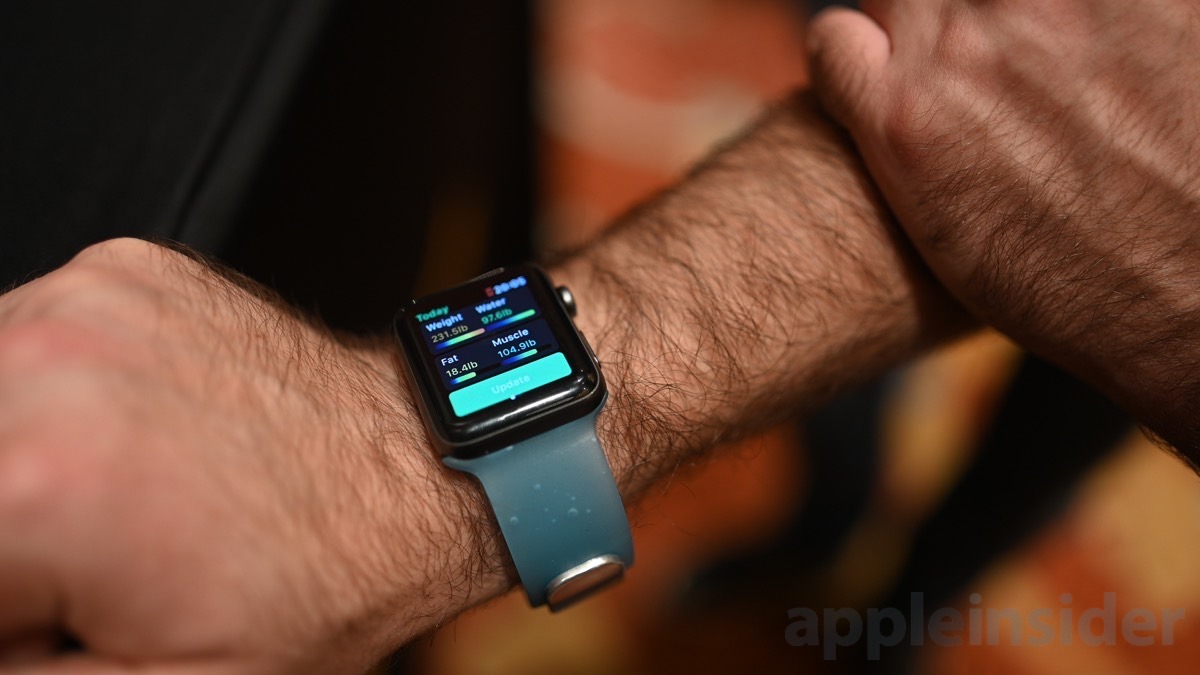




-xl-m.jpg)



 Amber Neely
Amber Neely
 William Gallagher
William Gallagher
 Malcolm Owen
Malcolm Owen

 Mike Wuerthele
Mike Wuerthele


 Thomas Sibilly
Thomas Sibilly








5 Comments
As you said, it doesn’t look particularly attractive in just the few photos you posted. Was it at least as comfortable as, say, a standard Sport band?
Separately, I wonder how easy/not easy it would be for Apple to incorporate similar tech into the body of the Apple Watch so using a band like that would just be unnecessary.
Does it communicate through Bluetooth ?
Highly doubt the bioimpedance technology used is accurate...An accurate reading needs 4 points of contact (each foot and each hand). Even scales like FitBit are only able to get a reading on your lower body and estimate upper body readings. Giving an accurate body fat %, muscle mass reading from one wrist seems gimmicky.
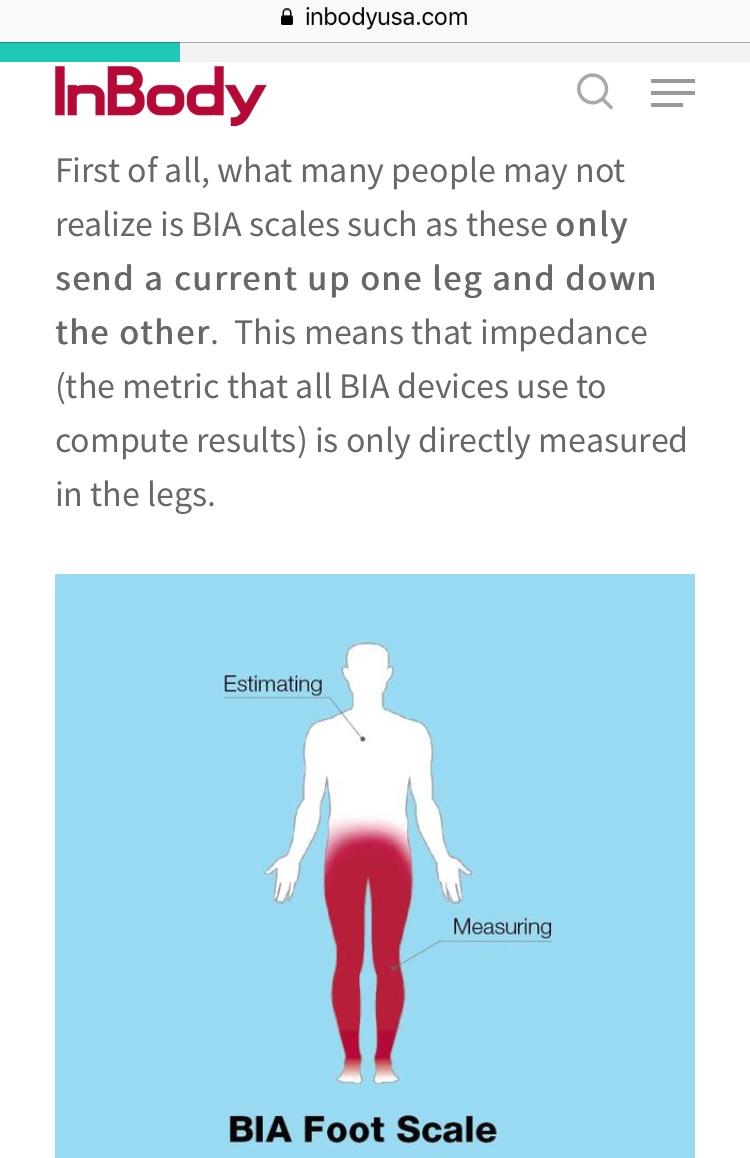
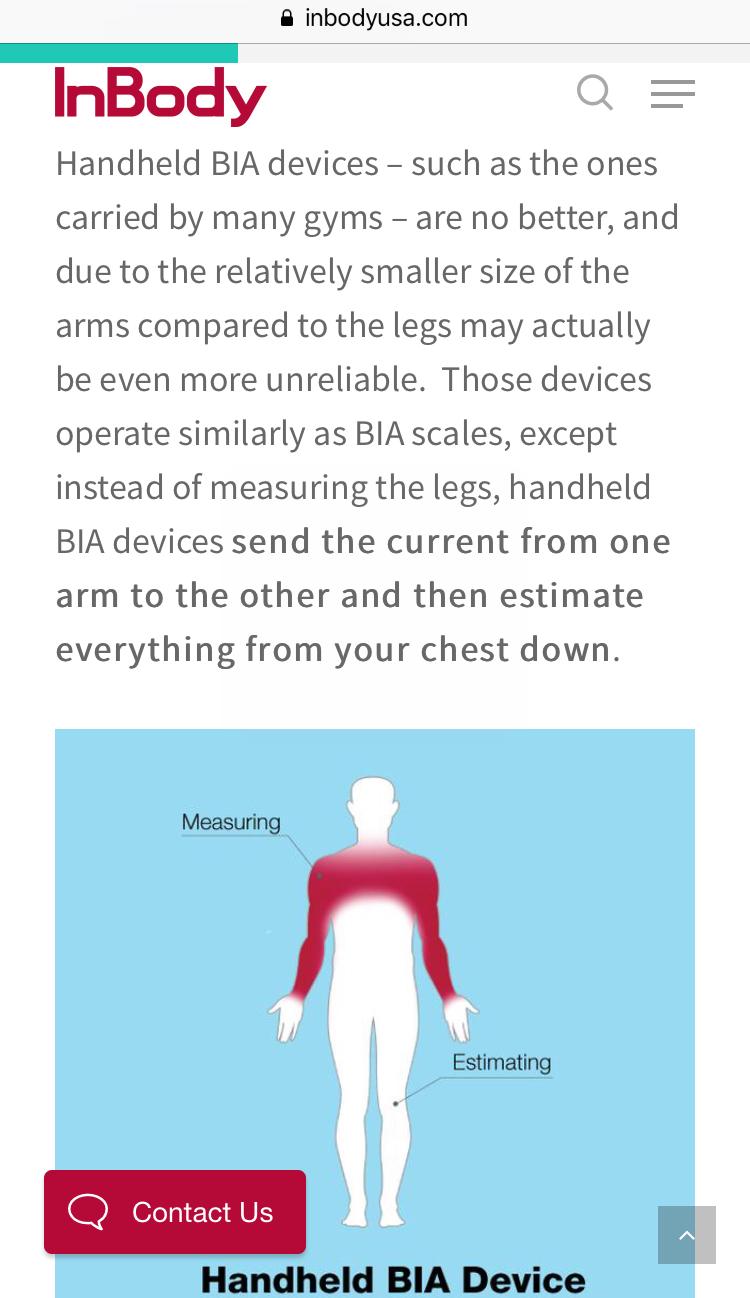
https://inbodyusa.com/blogs/inbodyblog/bia-technology/39971073-bia-once-flawed-not-anymore/
Looking forward to a detailed review on how & how well this thing works.
While I consider accurate measurement of fat vs muscle mass as a critical vital sign -- and believe that physicians not being willing to spend the money to measure it to be malpractice -- neither do I think it's something you need to measure continuously.
But, measuring hydration on a continuous, ongoing basis could have significant benefits -- both for the elderly who are often (reportedly) at risk for dehydration as well as for endurance athletes where hydration levels are imperative to health and performance.
I experienced that myself in a 2017 10K race: I had trained running the distance without taking hydration, And so, when the race temps were at the temps I had trained in, I figured logically that I could do it again without stopping or slowing to hydrate. But, what I did not take into account was that, unlike my training, the race took place in open, exposed sun. As a result, I dehydrated which triggered overheating and I not only missed my goal time but put my well being at risk. In a longer race I could have put my life at risk. That is, while working the medical team for the Pittsburgh marathon a few years ago we ended up with a dozen runners with body temps above 110 degrees -- which is very much life threatening. Proper hydration could reduce that by enabling the body's cooling mechanism to work efficiently.
So, yeh! Measuring hydration in an ongoing basis can be very, very important.
Like most scales, relative change is what your measuring, so with that said, I want one.